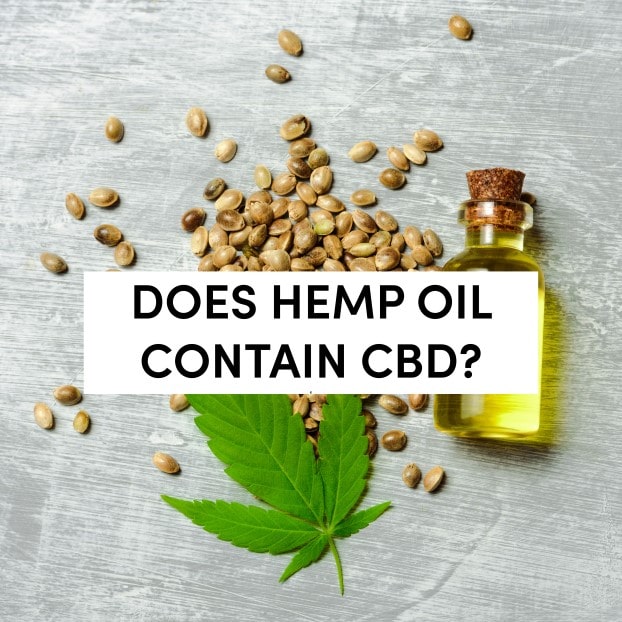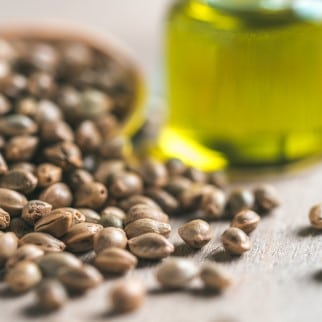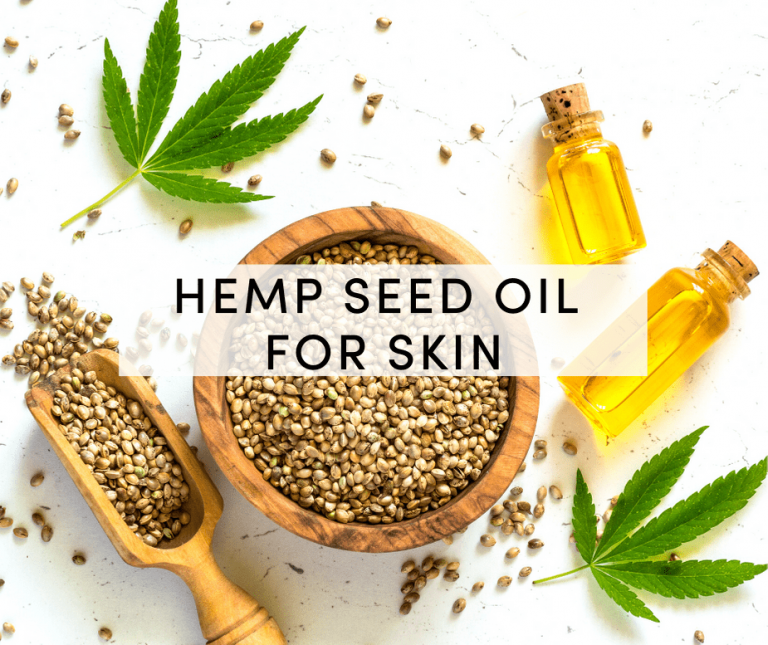Does Hemp Oil Contain CBD? Can You Mix Both Oils?

Posted on May 31st, 2021
There has been a lot of discussion regarding CBD oils, hemp, and hemp oils. Thanks to some early marketing blunders, many people think all these things are basically the same, and that’s wrong. Even worse, more and more products are coming to the market that contain hemp oil, CBD oil, or a combination of the two. Imagine thinking you’d get the same results with all of them due to still not being clear on the differences. A lot of people do not have a clear understanding of these two oils’ differences. One of the most common questions is: “Does hemp oil contain CBD?” Before you reach the answer to this question, it’s best you understand a couple of things first. Keep reading to learn the differences and similarities between the two oils and what type of role these substances play in one’s health.
What Is Hemp?
Hemp is a plant related to the cannabis plant. It is a versatile plant used for a variety of purposes. Strong fibers are something that goes to use in many types of industrial products. There is evidence that ancient civilizations existing more than 50 thousand years ago, turning hemp into a usable fiber. It is possible to use hemp by itself or in combination with other fibers to make products such as:
- Rope.
- Apparel.
- Paper.
- Insulation.
- Mulch.
- Animal feed.
- Animal bedding.
- And many other products.
The plant grows fast like bamboo, so it is a sustainable raw material. The seeds and oil from hemp also go into use for a couple of therapeutic purposes.
What Is Hemp Oil?
Hemp oil is made by pressing the seeds of the cannabis plant. The oil, when unrefined, has a dark to clear light green color. The flavor has a tinge of nuttiness to it. Hemp oil that is darker in color tends to have a grassier flavor.
Hemp oil it’s something you can use for industrial and therapeutic purposes. It has solidifying properties, so it can also be a wood varnish or oil paints as well as a hardener in putty.
As for use in personal care, hemp oil provides many benefits to a person’s physical health on top of not having any psychoactive effects. That is due to it not containing significant amounts of THC. This substance is what gives the marijuana plant its signature psychoactive properties. The seeds themselves do not contain any THC. Even though the seeds are cleaned as much as possible just before pressing them for their oil, trace amounts from other parts of the plants from which the seed spun might make their way there. This accounts for the fractional amount of THC that might be present in hemp oil.
Effects of Hemp Oil and How It Works
Hemp oil gained attention for its therapeutic benefits. Hemp oil has rich amounts of nutrients and healthy fatty acids, including:
- Calcium.
- Iron.
- Magnesium.
- Vitamins B and C.
- And omega-3 fatty acids, among others.
The level of iron found in hemp seeds can reduce the risk of anemia. Its broad effect on reducing the body’s inflammatory processes plays a part in reducing the risk of many health conditions.
Studies show that the nutrients have beneficial effects in nourishing the skin. Applying hemp oil to the skin topically helps strengthen the defenses of the skin, which makes it more resistant to infection. It also helped in reducing inflammation and protected skin cells from oxidation. These, by the way, are all causes that lead to premature aging of the skin. Thus, hemp oil can support healthy skin and combat signs of aging. Skin conditions that could potentially benefit from an application of hemp oil include rosacea, eczema, psoriasis, and dermatitis, just to name a few.
Hemp oil also has potential benefits to the brain because it contains essential fatty acids, which the brain needs for proper functioning. In studies conducted on mice, the oil had beneficial effects in protecting brain cells from the inflammatory process. Polyphenols found in hemp oil also provide protection to the brain.
The nutritional profile of oil from hemp seeds also has potential benefits for the heart. Past studies point towards possible benefits in lowering cholesterol and blood pressure. Hemp seed oil contains ALA, or alpha-linolenic acid, which can reduce the risk of heart disease. It is similar to the ALA content found in fatty fish and flaxseeds. The initial research showed a lot of promise, and more research and clinical trials will soon likely follow.
Cannabinoids – What Are They?
Cannabinoids are chemical substances naturally found in the cannabis plant. The plant contains over 100 different cannabinoids. One of the most prevalent ones is THC (tetrahydrocannabinol). THC is the compound in cannabis that causes psychoactive effects. This is the substance that causes a person to feel “high” when using something that contains high enough levels of THC.
What Is CBD?
CBD is an abbreviation for cannabidiol. Along with THC, it is the other chemical compound that is most prevalent in the cannabis plant. Unlike THC, CBD does not have psychoactive properties, so it will not cause a person to feel “high.” In fact, this cannabinoid has properties that can counteract the psychoactive effects of THC.
Effects of CBD and How It Works
The body is kept in balance when its complex network of molecules, neurotransmitters, and cell receptors in regulating the body’s multitude of processes properly. This network goes by the name of the endocannabinoid system. It impacts the way the body’s cells communicate with each other along with essential functions such as:
- Memories.
- Mood.
- Sleep.
- Temperature.
- Pain sensation.
- Immune responses.
- Metabolism.
- Appetite and other functions of the body.
A big portion of these receptors are found in the nervous system and in the immune system. CBD interacts with this network of receptors and may bring about positive effects, resulting in better health for the entire body.
When the body experiences a problem, the body’s homeostasis goes out of balance. When this happens, the endocannabinoid system usually releases its own cannabinoids called endocannabinoids. The cannabinoids bind to the receptors and enable the cells to communicate with each other in order to help the body achieve balance once again.
Studies have shown that the cannabinoids released by the body have great similarities to the cannabinoids found in the cannabis plant. When the endocannabinoid system becomes overwhelmed and unable to release the needed cannabinoids, its processes go out of balance.
However, if you take CBD, it can bind to the cannabinoid receptors in the nervous system and the peripheral systems. It helps the body’s cells communicate with each other to address the conditions that caused the body’s imbalance. In other words, it supplements your ECS, which comes in handy when it is unable to produce the endocannabinoids it needs.
The physiological conditions that the body experienced, such as pain, spasms, and swelling, then becomes ease. Likewise, it will also act upon psychological conditions like anxiety and negative moods, softening them.
Where Does CBD Come from?
CBD comes from the aerial parts of the hemp plant. These parts of the plant are what one sees above the soil. So, these parts include the stems, leaves, and flowers. Manufacturers extract CBD oil from them. The roots remain underground, so CBD is not in them. Also, hemp seeds do not contain any CBD or only the tiniest; most negligible amounts rub off the grown plant the seed comes from.
Does Hemp Oil Contain CBD?
Since hemp oil comes from pressing the seed, and the seeds do not contain CBD, the oil does not contain CBD. However, does hemp oil contain CBD if some of the aerial parts of the plant got mixed into the processing? The answer is yes. Some minute trace of CBD might adhere to the seeds even though the seed underwent leaning before pressing. Therefore, there might be a very small trace of CBD found sometimes in these seeds and their oil. It is important to point out that this amount is insignificant. One can consider the hemp seeds to have next to zero CBD.
Does Hemp Oil Contain CBD If You Mix Both Oils?
There are indeed products that combine hemp oil with CBD oil. For these blends, the content will contain CBD. However, it is recommended that you use the two oils be separately for their individual purposes. This way, each will separately bring forth its own therapeutic benefits without the effects of other oil impacting the other. It is important to understand that hemp oil is not the same as CBD oil.
Oil from hemp seeds has many benefits, but it does not have the unique therapeutic benefits that come from CBD oil. Hemp oil provides benefits to the physical body, as mentioned above, but CBD oil also provides psychological benefits on top of physiological benefits. In addition to relieving pain and inflammation of the joints, CBD oil can relieve stress, help a person get a more restful night’s sleep, and bring about an emotional calmness all around.
Hemp oil and CBD oil each have their own role in providing benefits to a person’s overall well-being. If one wants to incorporate hemp oil and CBD oil in their health regimens, you better know exactly what each provides and what they do not. The more understanding you have about CBD and hemp, the better chances to make an informed decision on which one to use. If what you are looking it’s for CBD oil specifically, Tanasi.com has it along with many other CBD products; check out our selection.




